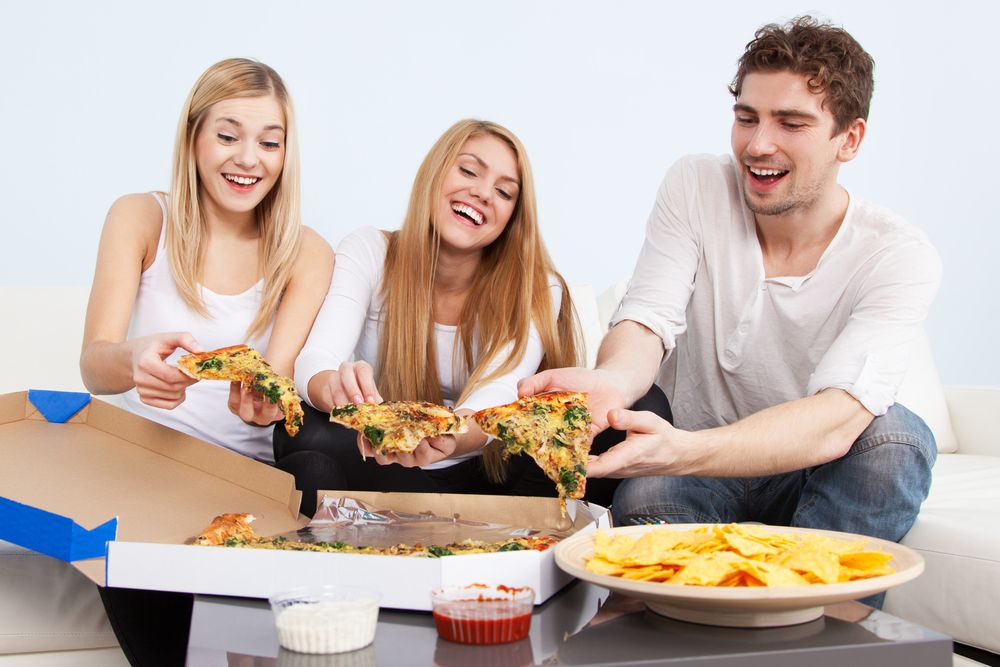Do you really have to sacrifice pleasure to maintain your self-control? Most of us, when we hear the word “self-control,” we think about denial. Denying yourself pleasurable things such as new shoes, a piece of cake or another episode of your favorite Netflix show. However, according to new research, this might not be quite correct.
Many studies have researched self-control while focusing on food. According to a recent paper published in the Journal of Consumer Psychology, studies examining self-control through controlling eating habits could have some flaws. Is it possible to not lose self—control and eat still your cupcake? Researchers began with examining 300 studies on pleasure, self-control and restraint to find the answer to this question.
Researchers concluded that 95.90% of studies perceive indulging in tasty food such as chocolate cake, pizza and ice cream as a failure. Good food choices are apples, vegetables, salad, raisins, water and fruits which are low in fat, sodium and sugar. And then, there are those tasty and bad food choices that are challenging to resist.

Do You Have to Sacrifice Pleasure to Maintain Self-Control?
Researchers suggested that eating tasty food doesn’t mean that you lack self-control. In order to fail at self-control, two outcomes are required. The first outcome is regret and the second outcome is violating a long-term goal that you’ve been working on for a while. If the choice you are making doesn’t meet these two outcomes, then you are being too strict with yourself. Eating in moderation doesn’t mean that you will feel shame for eating pizza and ice-cream every now and then.
The need to have self-control often requires some reframing of what self-control means. If we are denying ourselves some nice things, we can easily become miserable and maybe we need to focus on finding more pleasure in life.
Dr. Irene Scopelliti, said in a press release:
“Presented with the opportunity to eat cake or carrot sticks, a person intent on losing weight would experience a self-control failure when they choose to eat the cake and expect to regret having done so.”
The anticipation of regret matters. Eating a cake could make you feel that you are undermining your weight-loss goals. Once we finish the piece of a cake, we feel shame. Dr. Scopelliti explains:
“If the same person ate only a small piece of cake, however, they may not experience a self-control failure because they haven’t eaten enough to violate their goal of losing weight and trigger regret.”
You should get pleasure by eating the cake, feel good about yourself without feeling shame or having your goals constantly on your mind.
Just because you eat cake doesn’t mean that you failed your weight-loss goals. Redefining your behavior and what self-control means is crucial for your own happiness. We are not robots who can plan each and every move.
When we talk about self-control and food we are almost always wrong. We are both capable of having ice cream and having self-control. If you have a small portion that doesn’t mean that your goals are all lost or that you don’t have self-control. All your efforts will not be undone just because you had a piece of cake. Feel free to indulge yourself without feeling shame and regret. Author of the study, Joachim Vosgerau:
“If a person is comfortable with their weight and does not anticipate to regret in advance their food consumption choices, then we cannot say that a person lacks self-control.”
The same goes for small non-food indulgences. It’s ok to indulge yourself with one more episode of your favorite Netflix show or a shopping spree. We are becoming too strict with ourselves in modern society, where eating a piece of cake or watching one more Netflix episode is perceived as a failure. As long as you won’t regret the decision and as long as your actions are not seriously taking you away from your goals, indulge yourself and learn the difference between enjoying yourself and losing self-control.




